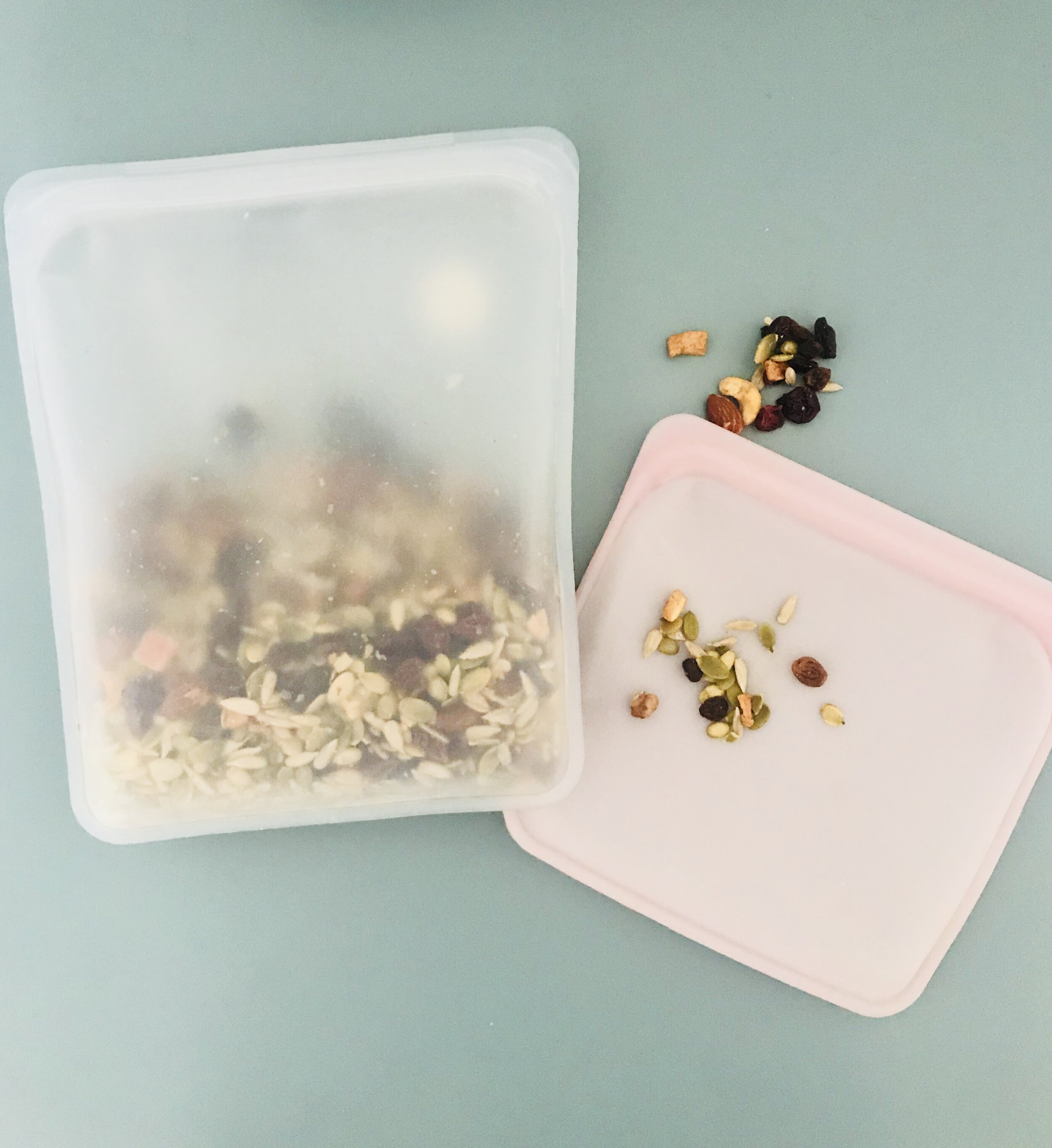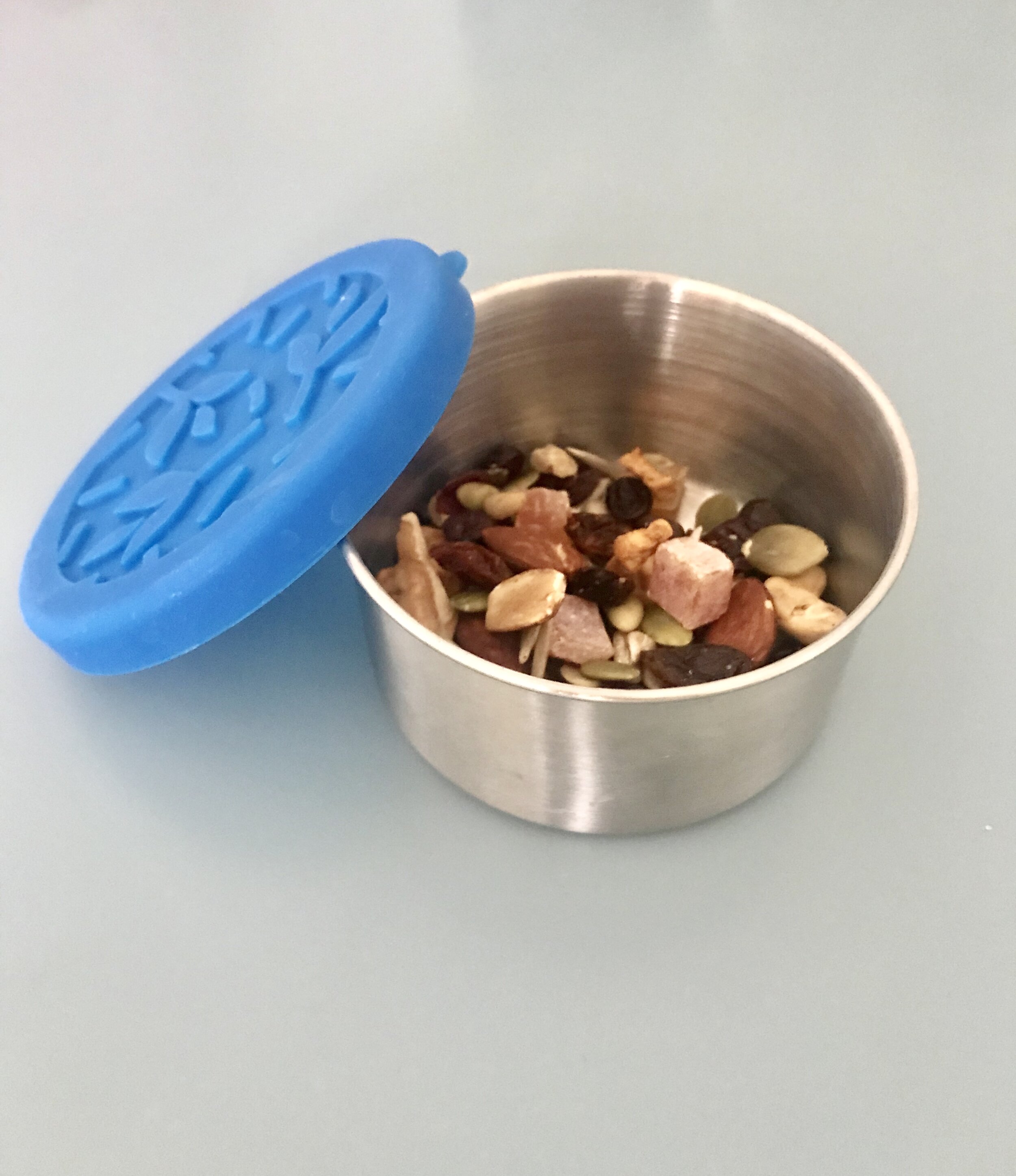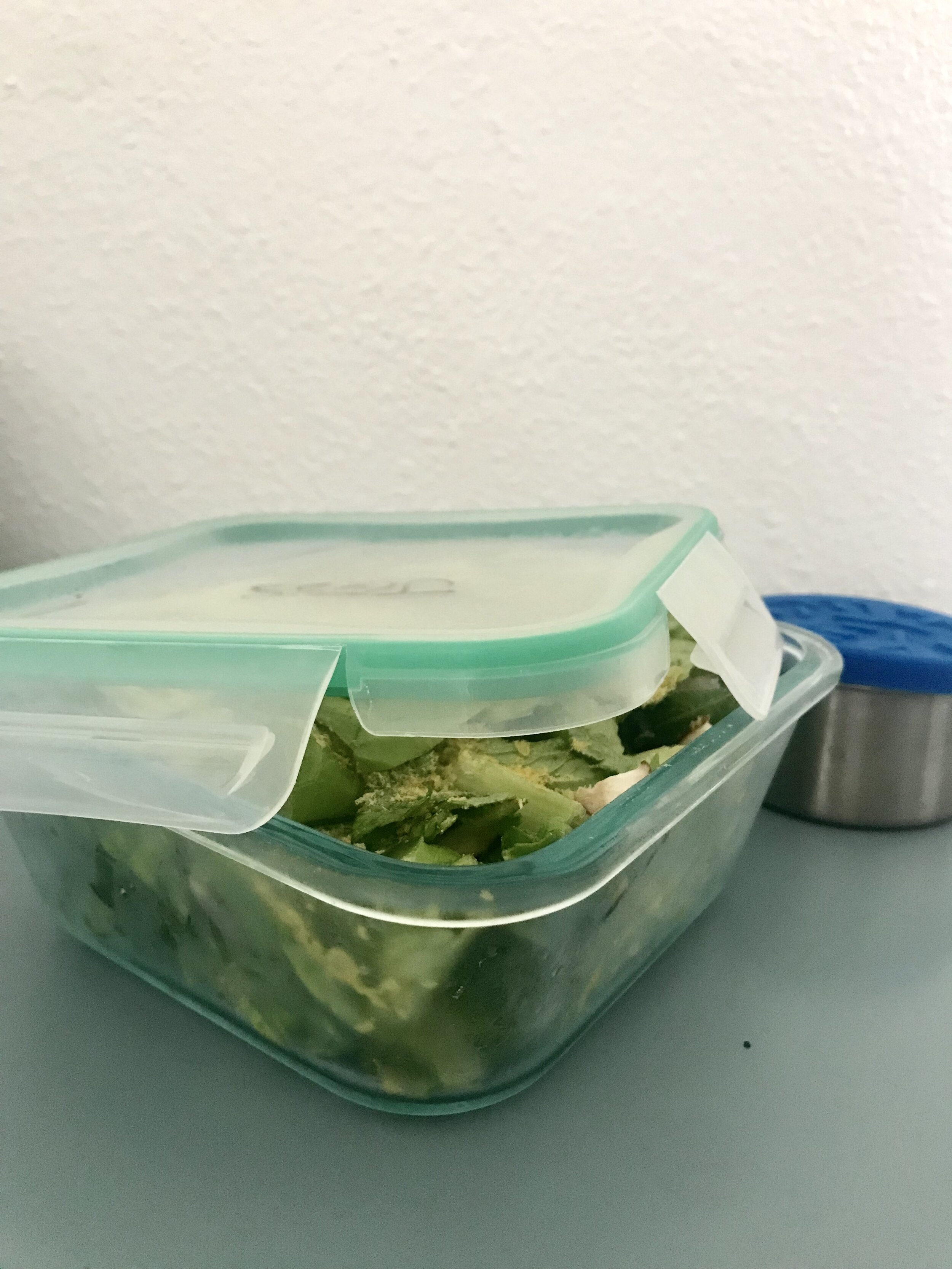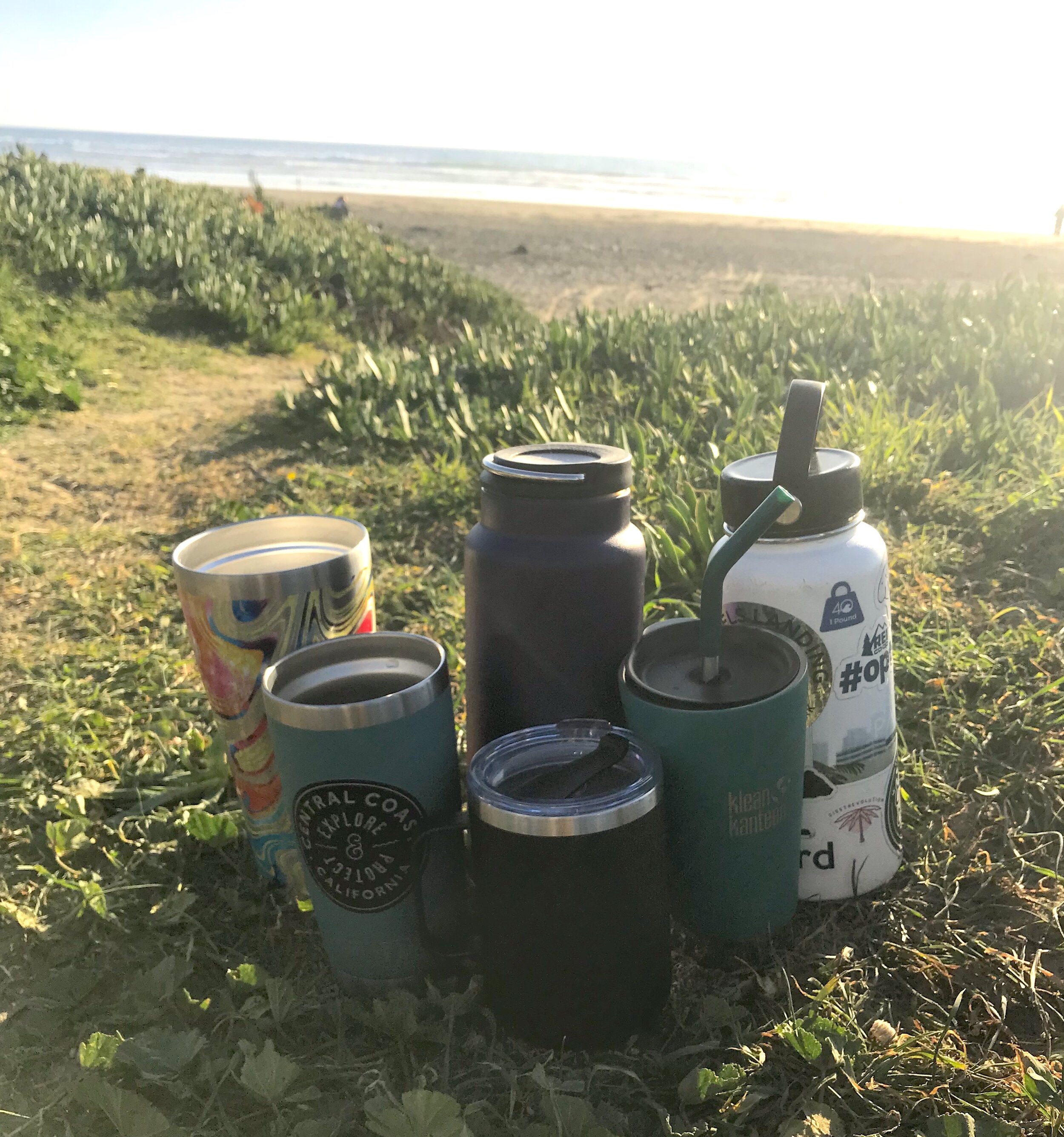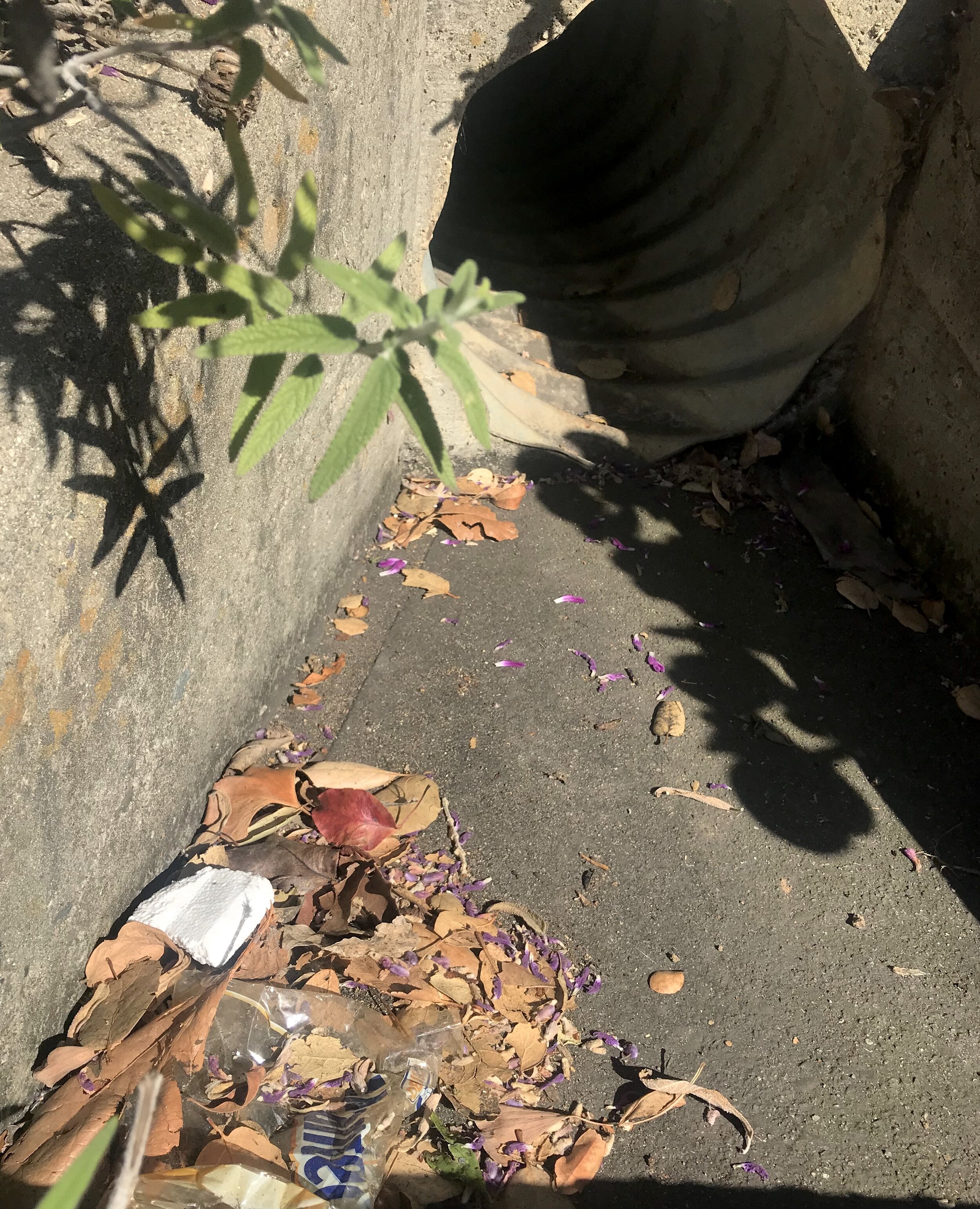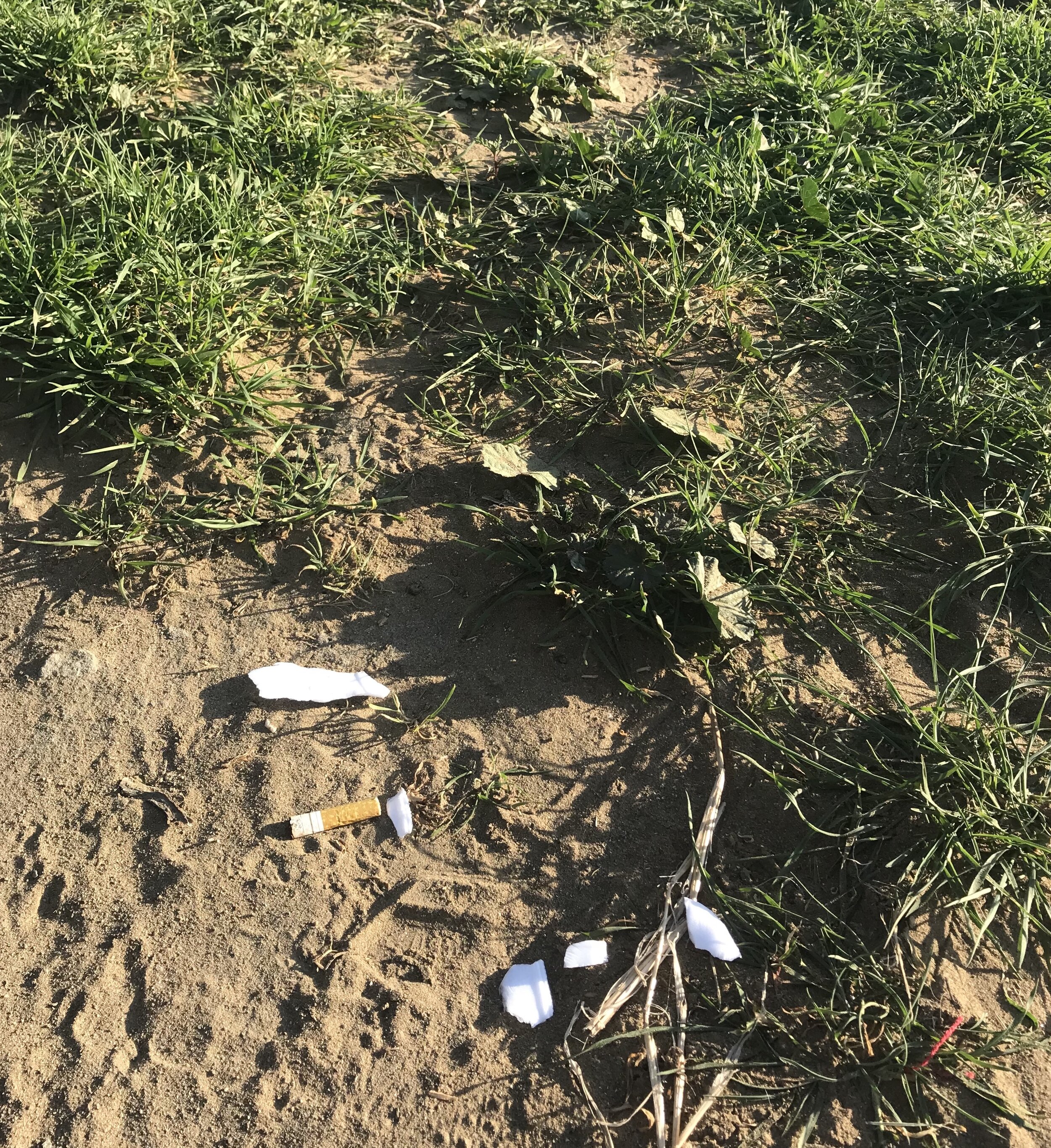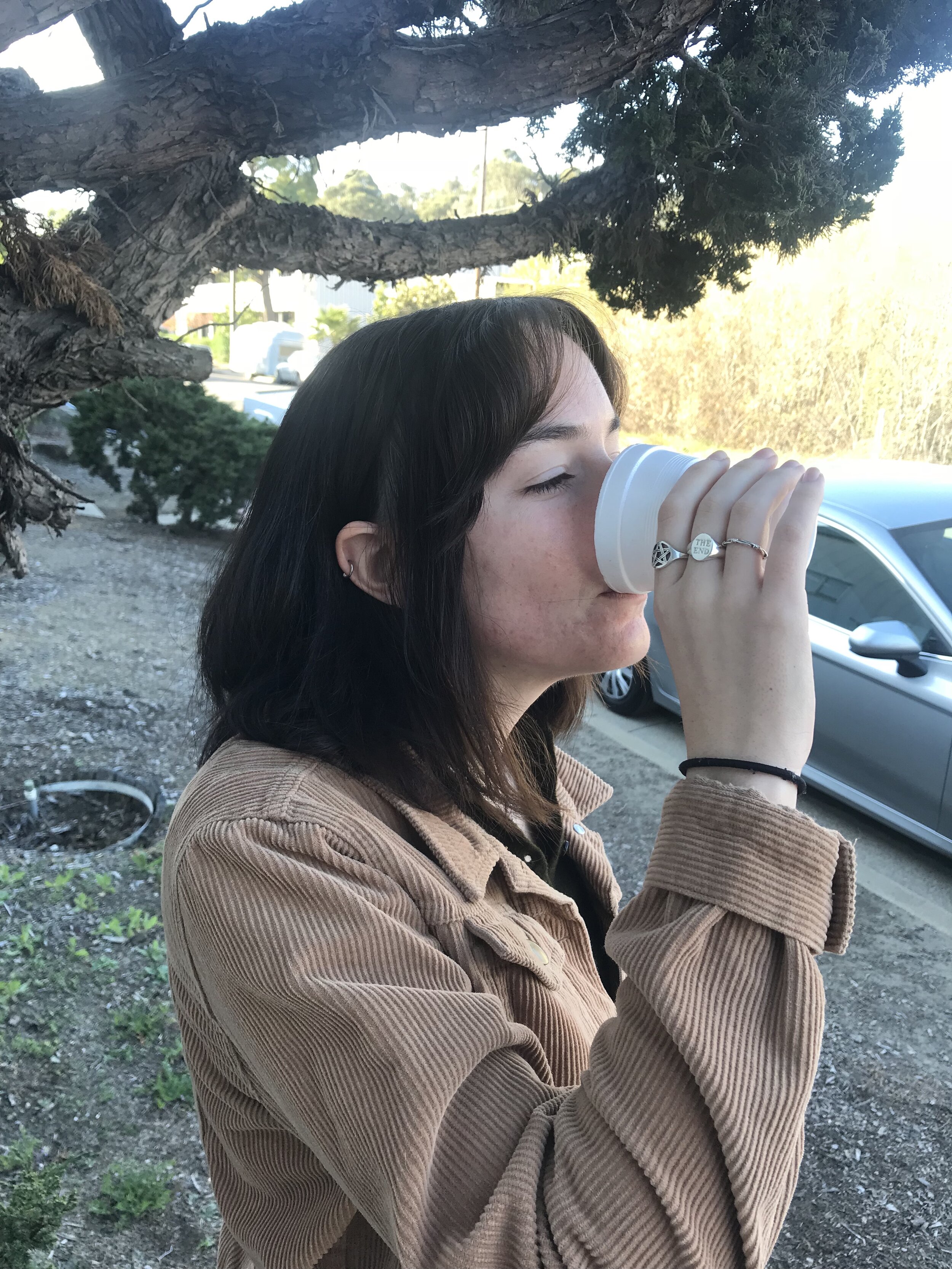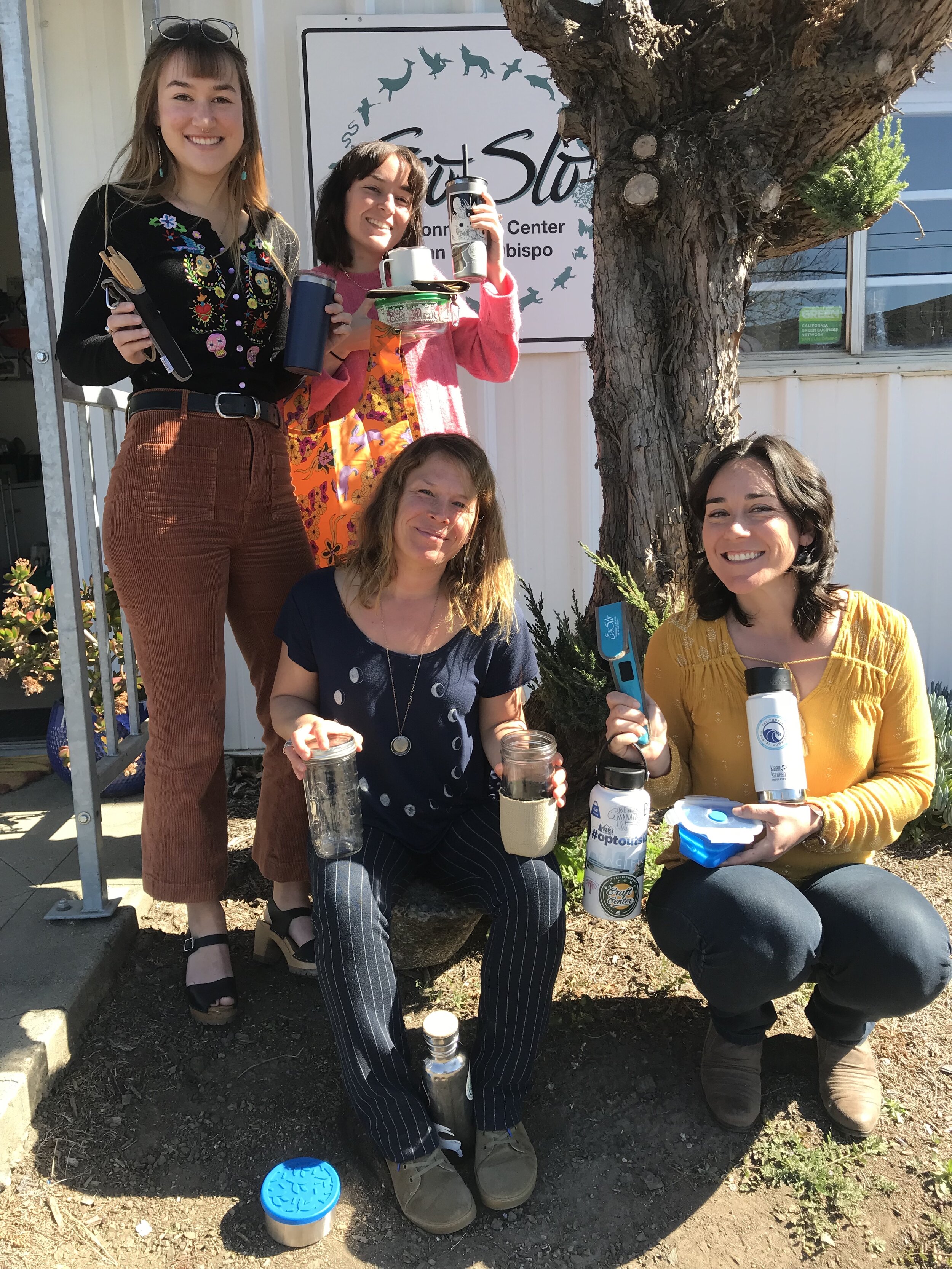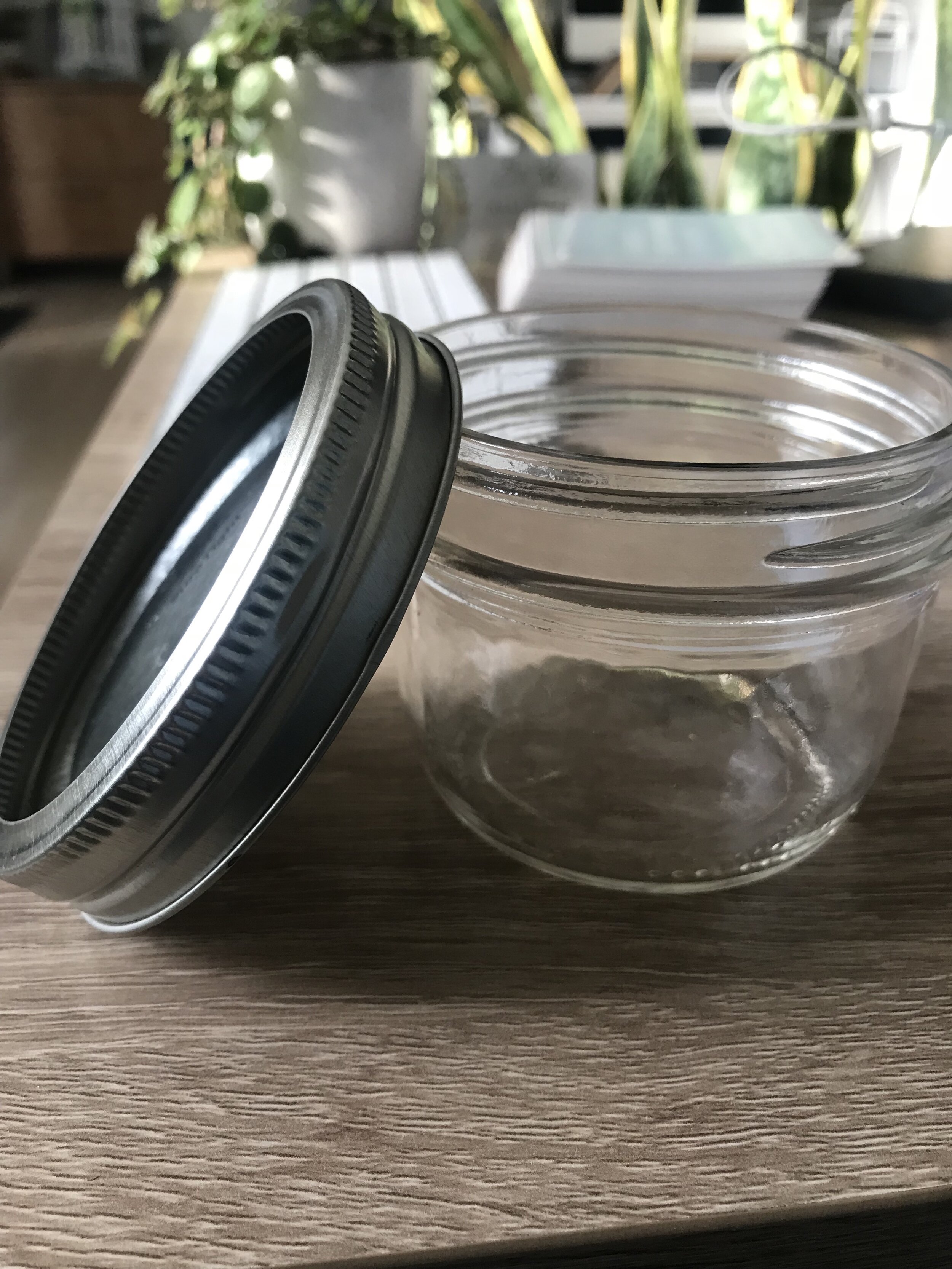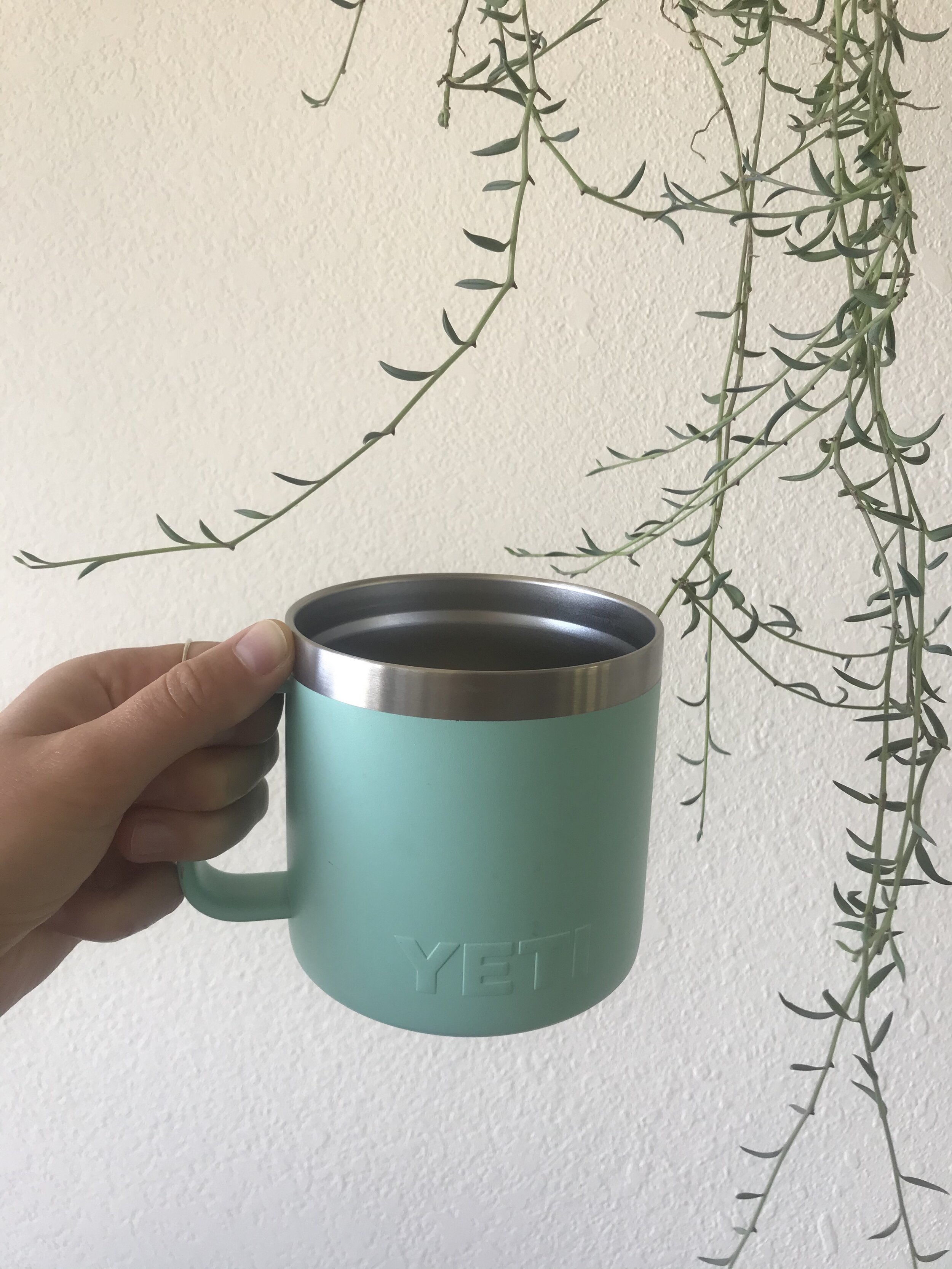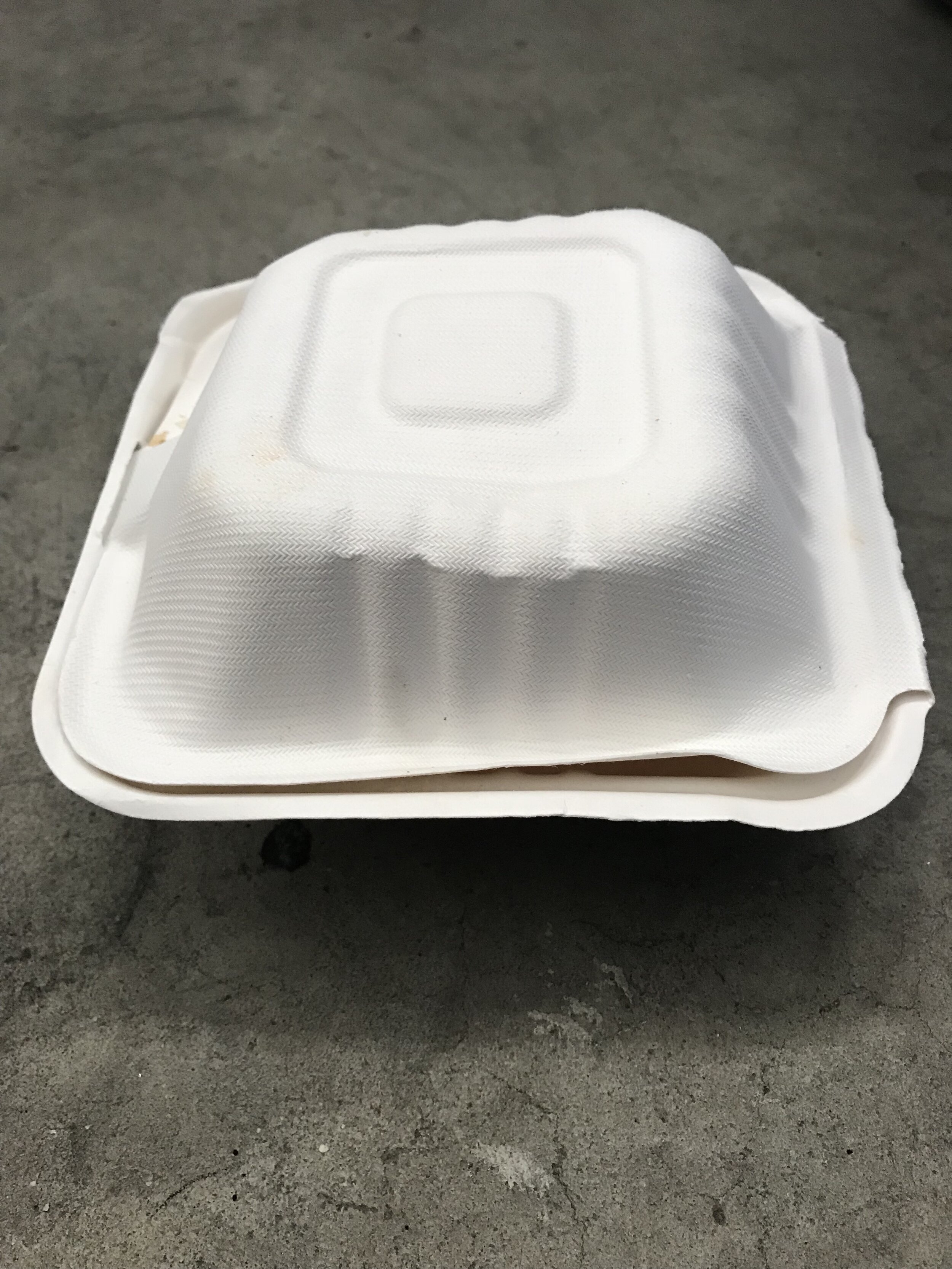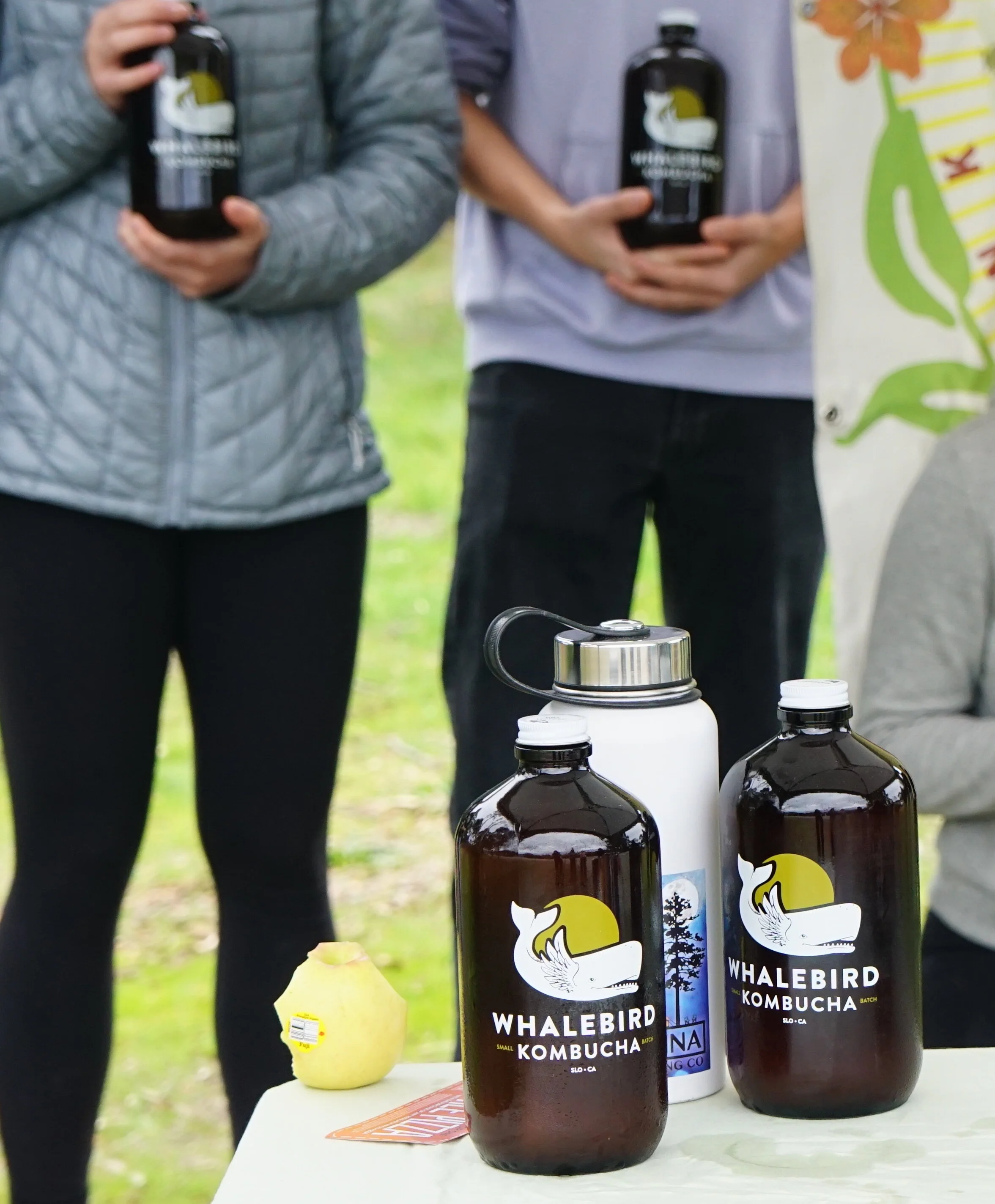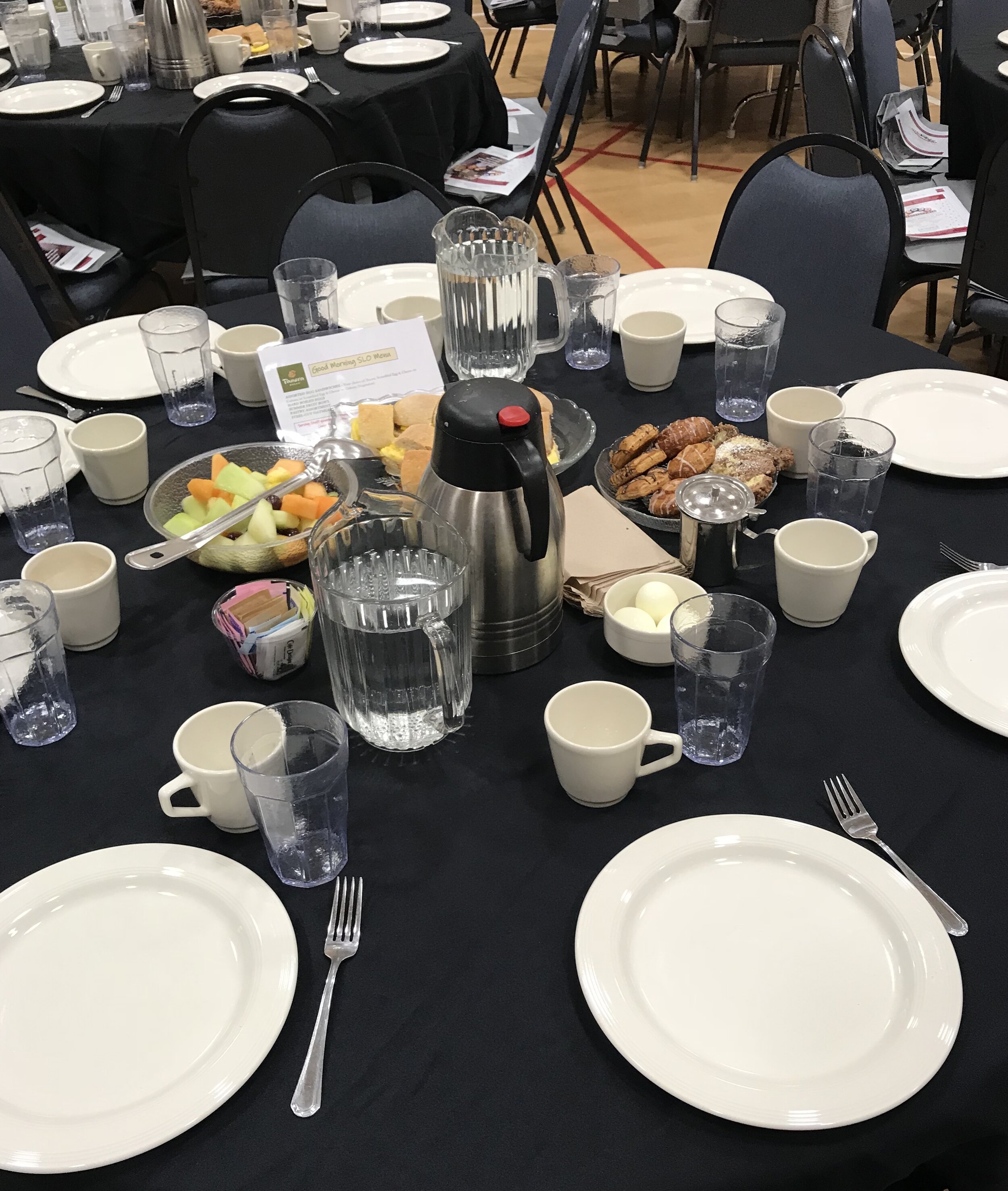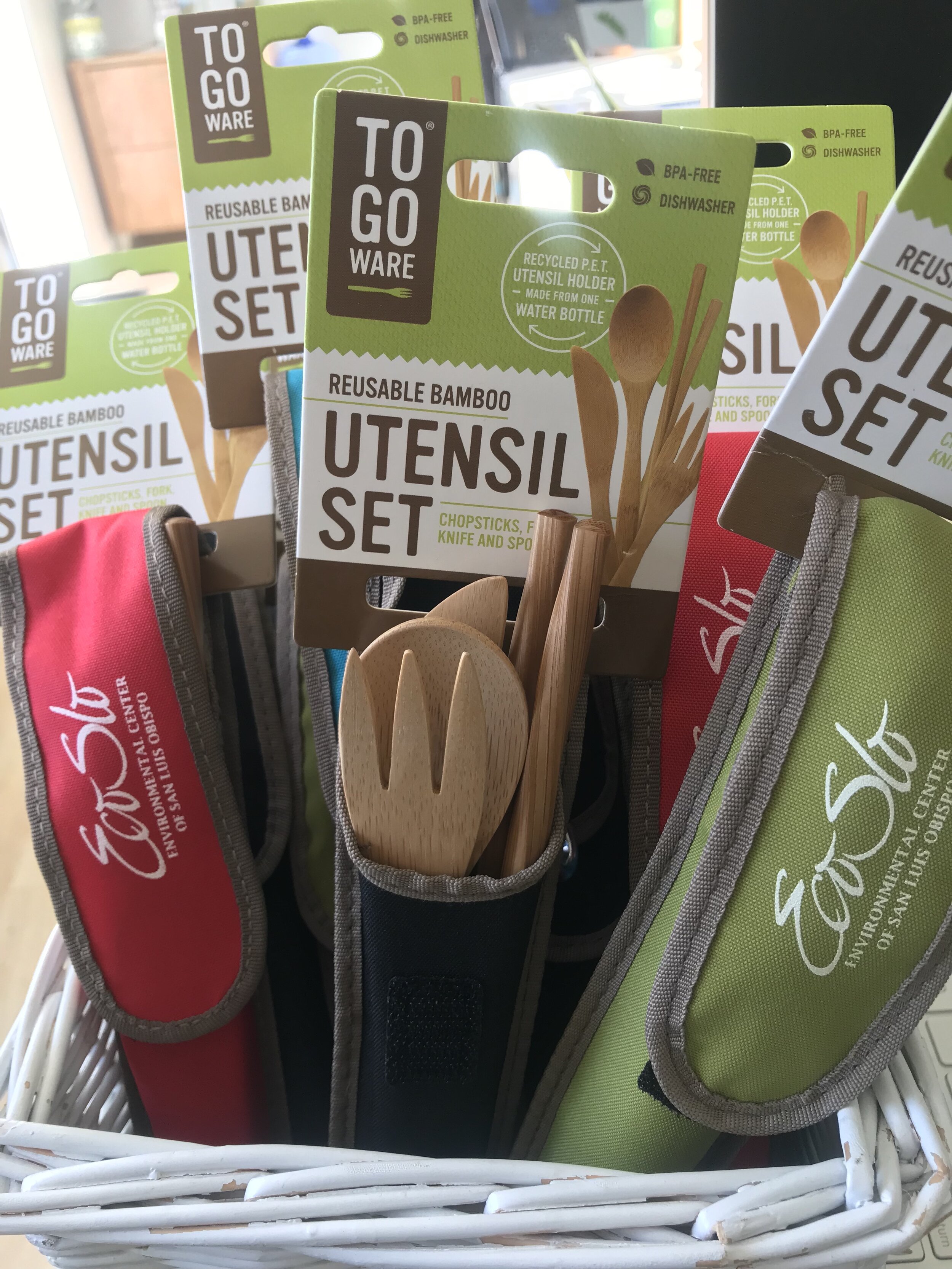Polystyrene Ordinance
Have you ever looked at the bottom of your take-out food container or foam cup and noticed a little number 6 in the triangle of arrows?
Starting April 9, 2021, a new ordinance in SLO County goes into effect banning the sale and distribution of all products, specifically food and beverage containers, with this resin code number #6.
Why?
Products with the #6 on them are made from a material called polystyrene or expanded polystyrene (EPS). Examples of polystyrene products that will be banned include the following: clamshells, bowls, utensils, plates, trays, wrappers or wrapping, cups, condiment containers, cartons, platters, and packing peanuts.
What are polystyrene and EPS?
Polystyrene is essentially a ‘plastic foam’ that is often used for take-out containers and cups because it is inexpensive and durable. The problem? They can’t be recycled locally and these disposable containers that are used in a matter of minutes, last for hundreds to thousands of years in our environment. These to-go containers pile up in landfills, and small pieces of this plastic get carried away in the wind--polluting the land and our waterways that lead to the ocean. Yuck!
By taking this step to ban polystyrene and EPS products, SLO County is showing its dedication to protecting our beautiful Central Coast environment!
Sustainable Alternatives
The good news is that there are so many sustainable options that are better for the environment AND cheaper over the long run. Reusable products last for a long time and can be used over and over! Using a disposable polystyrene container for 5 minutes, only for it to spend over 500 YEARS in the landfill, is not sustainable.
Glass tupperware
Mason jars
Stackable metal food containers
Stasher bags: Think about how many ziplock plastic bags you have thrown out. Well, what if you didn’t have to? What if you could use one over and over? That’s what the Stasher bag is! An awesome reusable zip-lock made from silicone, great for packing sandwiches or snacks to bring on the go.
Reusable water bottles and coffee mugs: With all the different sizes, colors and designs of water bottles, mugs, etc. to choose from (and stickers to add!) you can make your reusable your own special drink container to bring with you wherever you go!
Environmental Impact of Polystyrene and EPS
How are polystyrene and EPS really impacting the environment?
Every year, millions of tons of polystyrene and styrofoam materials are produced, only to be used for a few minutes at a barbecue, or take-out restaurant before being disposed of.
So where does it all go? Most polystyrene and EPS products end up sitting in landfills where they break up into smaller pieces but they do NOT break down, unlike biodegradable items that break down into natural, organic material. These small pieces of polystyrene get carried away in the wind and pollute our land and waterways. Polystyrene is considered a ‘persistent pollutant’ because of how long it lasts in the environment and the ease in which it spreads throughout cities, parks and waterways. As residents of the Central Coast, we are lucky to have some of the most beautiful landscapes--from beaches and estuaries to endless rolling hills and beautiful vineyards. By getting rid of unsustainable and contaminating materials like polystyrene and styrofoam (what are classified under resin code #6), SLO County is taking a stand to protect these special places in nature that we are so fortunate to be surrounded with!
Human Health Impact of Polystyrene and EPS
Did you know that the plastic foam cup (made of expanded polystyrene, EPS) that you got coffee in or the polystyrene box that you put last night’s leftovers in, actually contain chemical compounds that can be harmful to your health?
According to the World Health Organization (WHO), styrene, a chemical compound and the foundation of all polystyrene / EPS products, has been found in trace amounts in surface water, drinking water and food. In 2019, the International Agency for Research on Cancer performed an extensive study and confirmed that styrene is no longer ‘possibly’ a human carcinogen (cancer-causing), but is ‘probably’ carcinogenic to humans.
As materials made from chemicals that are toxic to human health and the environment, polystyrene and EPS (Resin code #6!) have given us every reason to ban them here. With so many great alternatives, from glass tupperware to metal reusable water bottles, it is EASY and BETTER for everyone - and everything - to opt for these sustainable alternatives!
What does ECOSLO use?
Here at ECOSLO we are big fans of reusables. Reusable water bottles and mugs are staple items (maybe because we drink so much coffee and tea…). Here are some of the ECOSLO team’s favorite reusable products!
Some of the items we use here: Bamboo utensils, stainless steel water bottles, mason jars, glass tupperware, thermoses, and metal to-go containers.
Let’s encourage one another to move toward more sustainable options every day!
Other Acceptable Alternative Materials
While reusables are always the best alternative to disposable materials - there are still other acceptable replacements to polystyrene/EPS containers.
1. Aluminum: it is a highly recycled material that can be used in place of the unsustainable resin code #6 plastic foam containers
2. Paper products: 100% recycled-content paper bags
3. Biodegradable: Be careful when choosing ‘biodegradable or compostable' containers. Although they appear to be more eco-friendly, 'compostable' plastic products usually end up in the landfill since special industrial compost facilities are needed to break down the material. All ‘compostable’ plastics and ‘biodegradable’ take-out boxes, like the ones at Whole Foods, are not recyclable or commercially compostable in SLO County → to the landfill they go
Order of best to least ideal alternatives to resin code #6 products:
1. REUSABLES! These are always the most sustainable options
2. Recyclables (like aluminum, paper products, and glass)
3. Biodegradable containers
Local SLO County Businesses and Organizations Leading the Way in Sustainability
With the polystyrene ban coming into effect in SLO County on April 9, 2021, some people are wondering how it will affect businesses that have been using these to-go products. Fortunately, there are so many amazing businesses in SLO County that are leading the way in sustainability. Many of them have even been recognized as certified Green Businesses and are great examples of how to be profitable while being environmental! So what are alternative options for plastic and polystyrene containers that some of these businesses have adopted? Take a look at what some of these eco-friendly local businesses are doing!
Whalebird: A local kombucha brewery, Whalebird offers reusable glass growlers for people to fill up on their favorite kombucha flavor at any location with Whalebird on tap throughout the county! They even have a ‘growler club’ offering a discounted price for those regulars who can’t get enough of their delicious kombucha. An awesome way to encourage reusables here in SLO!
2. SLO Chamber of Commerce: The Chamber hosts the monthly Good Morning SLO program where breakfast and coffee is served to over 100 people. And they use ALL reusables! From using metal silverware to ceramic coffee mugs and plates, the SLO Chamber demonstrates how to host large events in a sustainable way.
3. ECOSLO: ECOSLO became a Certified Green Business in 2019 and we are big advocates for reusables and all things sustainable. Swing by the office and buy one of our reusable bamboo utensil sets to bring with you whenever you go out to eat!
